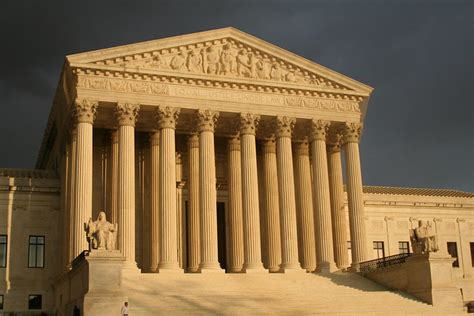Mahanoy Area School District vs. B.L.

May 4, 2021
On Wednesday, April 28, the Supreme Court heard a case regarding the free speech of a student who attends Mahanoy High School. Brandi Levy, the 14-year-old student involved in the case, tried out for the varsity cheerleading team for her high school and didn’t make the team. She did make the junior varsity team, but she unsuccessfully tried out for the school’s softball team. Levy’s natural reaction was to go onto social media to express her anger. However, she used strong profanity and said “F- school, f- cheer, f- softball, f- everything.” Levy was then faced with a suspension from the cheerleading team because one student, out of the 200+ that had seen the post, was the coach’s daughter who had shown the coach the Snapchat post. Following the suspension, Levy went to court against the school district because she had not been on campus when she had posted on Snapchat, and she believed the suspension was unreasonable.
The Supreme Court’s verdict isn’t set to be released until June, but this will certainly be a landmark decision. Originally, the case was heard both by a federal judge and the U.S. Court of Appeals for the Third Circuit, both being in favor of Brandi Levy. However, the school district brought the case to the Supreme Court, hoping to overturn the original ruling. Mahanoy Area School District vs. B.L. is a significant case because the Supreme Court’s decision could greatly affect the nature of freedom of speech in a school setting. In a world where technology and social media exist, it’s harder for schools to crack down on cyberbullying and possible threats being made.
Not only is the case significant in the court, but students around the country could be affected based on the outcome. If the Supreme Court rules to overturn the decision made in the Court of Appeals, then what is posted on social media by teens could change. It’s not a surprise when teenagers turn to social media to rant or complain about something that has been stressing them out or angering them. Some teenagers even tend to use profanity within their rant, but depending on who the Supreme Court sides with in their decision, this could ultimately lead to more students facing consequences at school. Not only that, but students would have to be even more cautious of what they post online than they already are. The other outcome though would be that the Supreme Court agrees with Brandi Levy. In this case, the court would most likely set a new precedent as to what “on campus” and school grounds are. On top of that, the Supreme Court would have to clarify to what extent of permission schools are given to use a student’s social media posts as a reason to discipline them.

